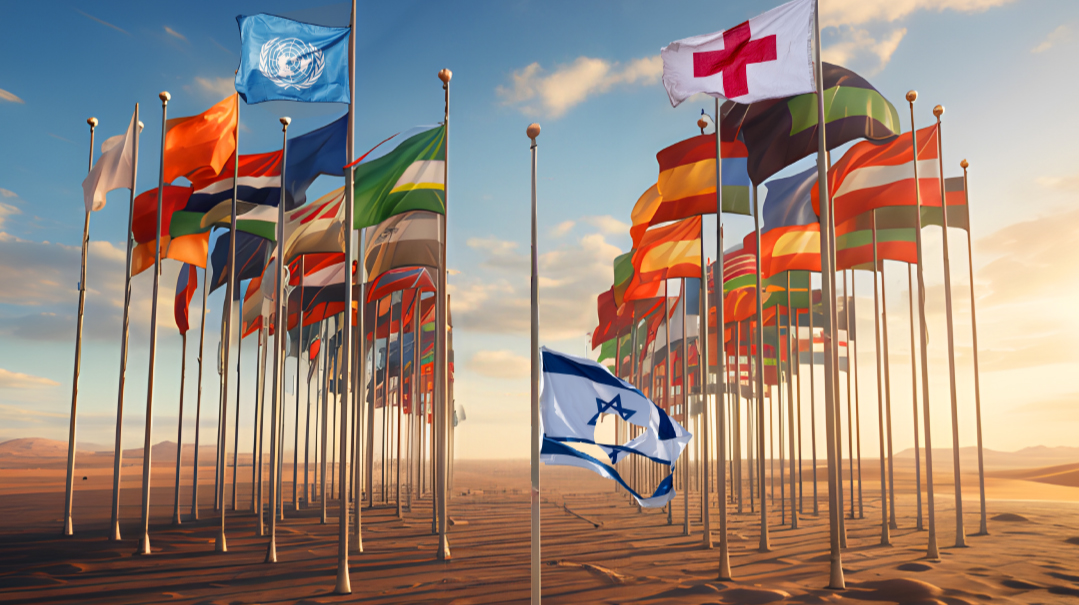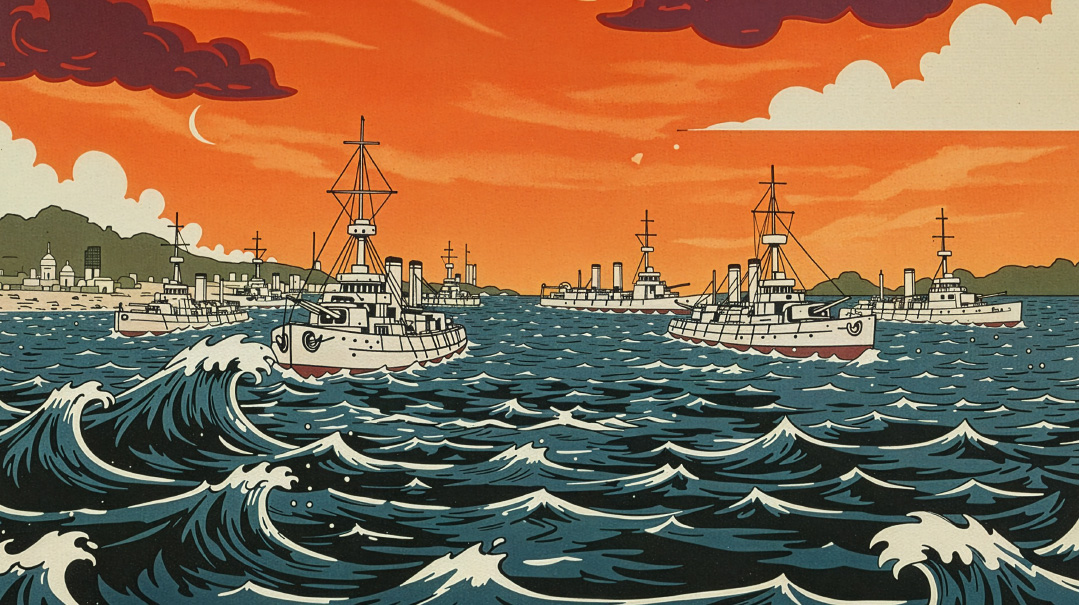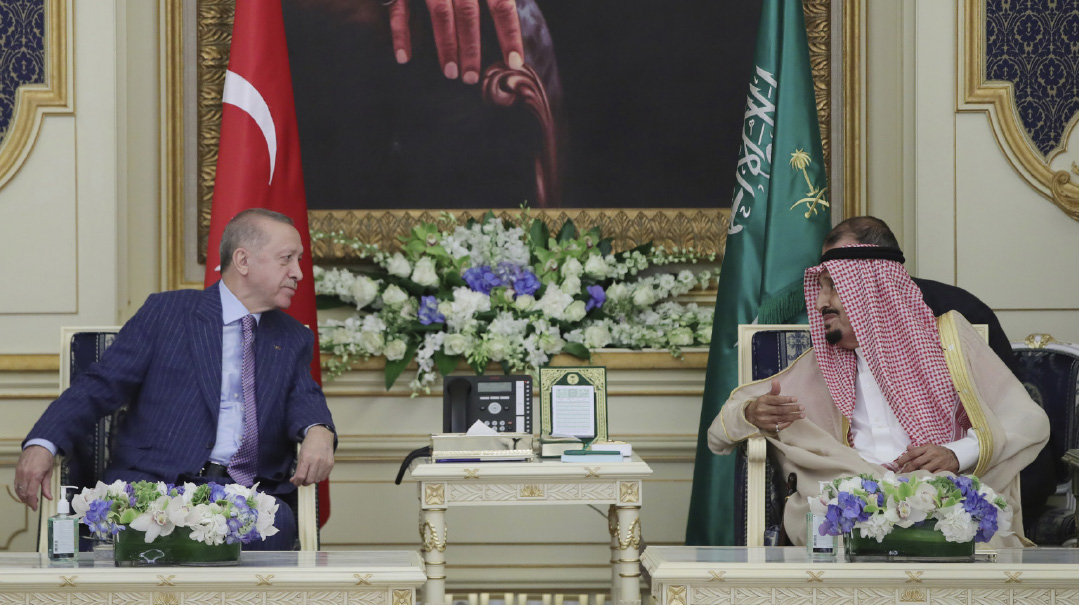Do Jewish Lives Matter?

Blood libel in the Hague: Human rights attorney Arsen Ostrovsky dissects the legal threat

A new front in the war being waged on Israel opened on December 29, when South Africa filed a complaint with the International Court of Justice, accusing Israel of committing “genocide, war crimes, and crimes against humanity” against Palestinians in Gaza. The 84-page document asserted that Israel’s actions are genocidal, intended to bring about the destruction of a substantial part of the Palestinians as a national, racial, and ethnic group.
“The claim by South Africa is completely without a shred of merit or any legal basis whatsoever,” says human rights attorney Arsen Ostrovsky, CEO of the International Legal Forum, an Israel-based NGO of lawyers advocating for Israel, in a conversation with Mishpacha. “Essentially, it is no more than a blood libel and act of lawfare, in which South Africa is willingly serving as pro bono counsel for the Iranian regime and Hamas.”
Despite Ostrovsky’s contempt for South Africa’s case, he takes the charge very seriously. “The crime of ‘genocide’ is one of the most serious accusations that can be leveled in international law and has a very specific definition under the Genocide Convention, meaning committing acts intended to destroy, in whole or in part, a national, ethnic, racial, or religious group. It has nothing to do with the number of civilian casualties, with the key element of the crime being the need to possess relevant ‘intent.’ ”
South Africa’s complaint urged the International Court of Justice (ICJ), a United Nations entity headquartered in the Hague, Netherlands, to demand that Israel “immediately suspend its military operations in and against Gaza.” The complaint does not classify Hamas’s October 7 attack on Israel as genocidal, reserving that term only for Israel’s response to the attack.
Jordan, Malaysia, and Turkey have backed South Africa’s claim, and the first hearing will likely take place later this week. Although South Africa’s action is an unprecedented step in the Middle Eastern conflict, perhaps the most surprising aspect of all this is the Israeli government’s decision defend itself in court against the charge, contrary to the expert predictions that Israel would ignore the case outright.
And to add further intrigue to the matter, Israel has appointed former High Court president Aharon Barak to the IJC’s 15-judge panel that will preside over the case. Barak, 87, retired from the bench in 2006 and is considered a political adversary of Prime Minister Binyamin Netanyahu, given that the current government’s judicial reform efforts were aimed at overturning Barak’s “judicial revolution.” Netanyahu likely approved Barak’s nomination to the ICJ panel nevertheless, because of the international esteem in which the veteran jurist is held, and because he believes Barak will be a reliable judge of Israel’s case.
Bitter Irony
The legal move by South Africa adds another link to a chain of international organizations ostensibly committed to safeguarding human rights around the globe, such as the United Nations, the Red Cross, and Amnesty International, who now find themselves openly aligned with Hamas, a genocidal terrorist group.
South Africa’s legal team is led by lawyer John Dugard, a former UN “special rapporteur on human rights in the occupied Palestinian territory” and former ad hoc judge for the ICJ in the 2000s. Dugard has gone so far as to allege that Israel practices a form of “apartheid” against the Palestinians that is worse than what black people endured under white rule in South Africa. In his argument before the ICJ, Dugard will try to connect Israeli government officials’ statements against the Palestinian population with the actions of the Israel Defense Forces. The implication is that statements made by Israeli government figures during interviews or in social media posts translate to official orders to liquidate the Palestinian civilian population.
The South African complaint has been sternly rebuffed by the United States government. John Kirby, spokesman for the US National Security Council, called South Africa’s move “meritless, counterproductive, and completely without any basis in fact whatsoever.”
Kirby has often been spirited in his defense of the Jewish state, and his response on this matter at a press conference was no exception. “Israel is not trying to wipe the Palestinian people off the map,” he said. “Israel is not trying to wipe Gaza off the map. Israel is trying to defend itself against a genocidal terrorist threat. So if we’re going to start using that word, fine. Let’s use it appropriately.”
The asymmetrical war that Israel is forced to wage against its enemy in Gaza frames a very convenient narrative for the international haters. But Arsen Ostrovsky insists that Israel’s supporters should not fear it being found guilty.
“Whatever criticism one may have of Israeli policies or IDF actions in Gaza, Israel is not seeking to destroy the Palestinian people, whether in whole, in part, or in any manner,” he says. “Israeli leadership has made clear that the primary goal of the operation in Gaza is to eliminate Hamas, by destroying its military and governing capabilities.”
In support of its case, the Israeli government has supplied data to the media demonstrating the repeated warnings the IDF gives civilians before it attacks — a complete anomaly in military history. According to the official figures, the civilian population of Gaza received over 70,000 phone calls, 13 million text messages, 14 million voice mails, and around 7 million leaflets to warn of IDF operations. And the IDF has provided soldiers to protect “humanitarian corridors” to facilitate the flow of Palestinians to safer areas.
South Africa’s accusation against Israel is only possible because both countries are signatories to the United Nations Convention on the Prevention and Punishment of the Crime of Genocide. Better known as the Genocide Convention, the treaty was adopted in 1948, due in large part to the tireless campaign of Raphael Lemkin, a Jewish attorney who fled the Nazi invasion of Poland. So there is a bitter irony in South Africa’s charge against Israel, which is defending itself against a terrorist group that does not subscribe to any humanitarian treaties and in fact seeks to complete the Nazis’ Final Solution.
Although Israel appears to be taking its case before the ICJ seriously, the court’s judgments nevertheless need to be put into perspective. Because the court’s decisions are not binding, only 50 percent of them are ever enacted. Ukraine’s 2022 case against Russia offers a recent example; although ICJ judges ordered Putin to halt his military incursion, he took little note of the matter.
However, even if an ICJ decision cannot force Israel to change its course of action, a negative ruling could have other impacts.
“The International Court of Justice is a very respected legal tribunal, and this charge, albeit utterly baseless and mendacious, must be treated with utmost seriousness,” Ostrovsky emphasizes to Mishpacha. “Although the court does not have the power to enforce its decisions, an adverse finding will have very serious ramifications, including diplomatic repercussions, harmful effects on Israel’s public image, and possibly further legal action against individual IDF soldiers and Israeli lawmakers in the International Criminal Court and other tribunals.”
Silence Is Complicity
A few days before the end of 2023, Amnesty International published a list of “five demands for 2024”: a cease-fire in Gaza; ending violence against women in Iran; restoring women’s rights in Afghanistan; taking measures against climate change; and upholding the rights of all types of minorities. There was nary a word about the kidnapped individuals held in Gaza by Hamas terrorists or about the atrocities committed against Jewish women on October 7.
Unfortunately, this fits with a pattern: The United Nations, probably the most influential international organization on the planet, has repeatedly endorsed the Palestinians’ narrative.
“Before October 7, it was no secret that the United Nations was not exactly a friend of the State of Israel or the Jewish People,” says Arsen Ostrovsky. “Post October 7, it has become clear that they are, in fact, aiding and abetting Hamas in carrying out and covering up this massacre. The fact that UN bodies like UN Women have been virtually silent in the wake of the shocking violence against Israeli women, while UNRWA employees have literally been involved in helping Hamas hold Israelis captive, only underscores that they are beyond redemption and have a complete lack of credibility.”
Another organization that has been selective about the outrage it expresses is the Red Cross.
“The Red Cross abandoned the Jewish People during the Holocaust, and they are doing so again today,” Ostrovsky states. “It should not go unnoticed that the barbaric October 7 massacre was the single largest mass murder of Jews since the Holocaust. Today, the perpetrators might be different, but Hamas is just like the Nazis, in both their agenda and brutality. Perhaps the only difference is that whereas the Nazis sought to cover up their heinous crimes, Hamas carried theirs out gleefully, using GoPro cameras and streaming their acts on the Internet in real time.”
The monstrosity of Hamas’s crimes is the context within which the Red Cross is currently operating, but Ostrovsky says the organization pays no acknowledgment to that whatsoever. “The Red Cross prides itself on being unwaveringly neutral, but when it comes to Israeli lives, they are simply unwaveringly absent, with their role having been relegated to no more than that of a glorified Uber driver. The fact that the Red Cross is dealing with a ruthless enemy that does not abide by any rules or norms of international law is not an excuse and does not absolve them of their mandate to provide ‘humanitarian protection and assistance for victims of armed conflict.’ Nor is it enough to merely politely ‘call’ for their release. It is simply inexcusable that after three months, the Red Cross has not seen a single hostage, obtained any proof of life, or even delivered any medicine.”
American citizens can wield outsized influence in holding the Red Cross accountable for this behavior, Ostrovsky says. “It is imperative now that the US Congress, as the largest governmental donor to the Red Cross, ask where American taxpayers’ money is going, why the Red Cross has been unable to see even a single hostage, or, for that matter, why they have ignored the irrefutable evidence right under their noses that Hamas turned hospitals in Gaza into their personal terrorist headquarters.”
Finally, in the absence of representation in international organizations, Ostrovsky urges Jews to use the resources at their disposal to tell their side of the story to balance out these entities.
“Israel is fighting this war on multiple fronts, not only against Hamas in Gaza, but a war of narratives and in the online arena as well,” he says. “The digital discourse also has a very real effect in shaping discussions, leading to policy actions, as well as even inciting to violence and the alarming surge in anti-Semitism and Jew hatred we have seen since October 7. We need to be proactively engaged on social media to shape our narrative, but at the same time, we cannot discount the influence that international organizations have. We need to be vigilant in combating anti-Semitism, misinformation, and distortion of facts on all fronts.”
Ostrovksy is passionate about his mission, he says, because for him this issue is “personal” — and it should be for all Jews, because there is an important underlying ethical struggle.
“I am a father with two young daughters. We tell our children that monsters exist only in books, but no, they exist in real life. We saw them on October 7, and we are reminded that they are still there every single day our loved ones remain hostage in Gaza. We cannot afford to be silent or waver. We need to stand up, be heard, and fight for our country, our people, and the return of our hostages.
“Ultimately, this is a war not only between Israel and Hamas but between good and evil, those who believe in freedom and those who are barbarians, those who live by the norms of humanity and those who have no humanity.”
(Originally featured in Mishpacha, Issue 994)
Oops! We could not locate your form.







